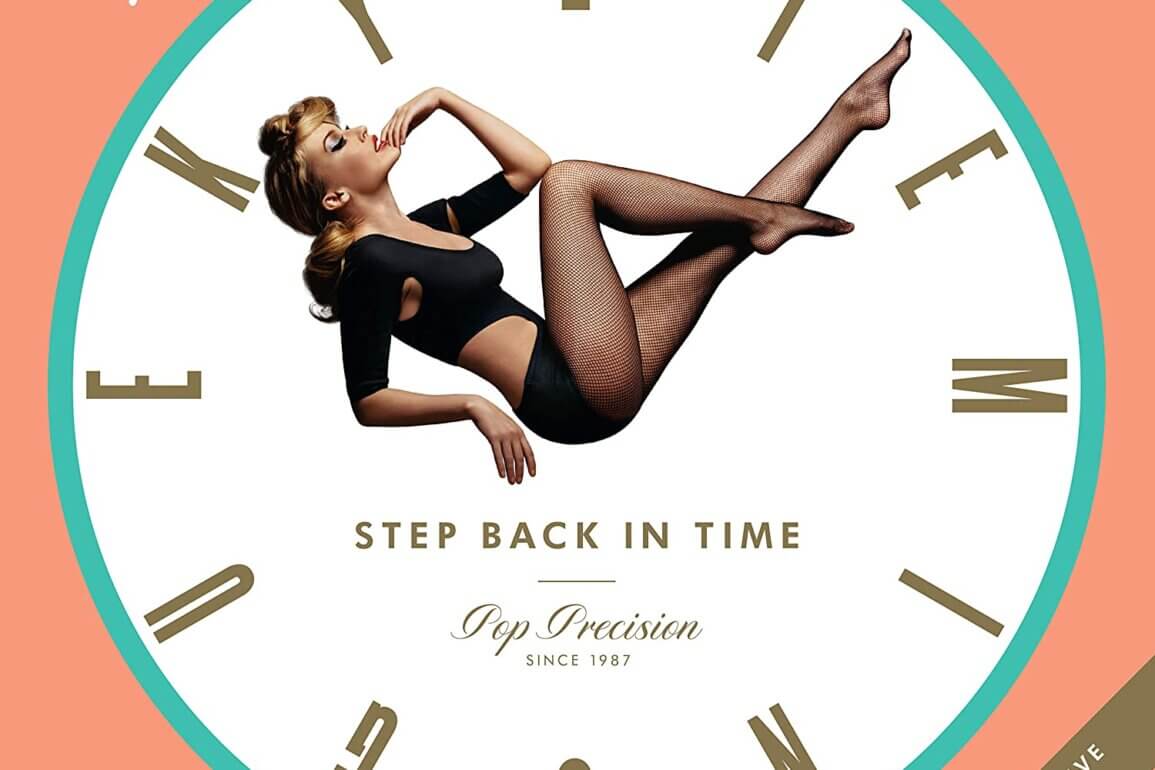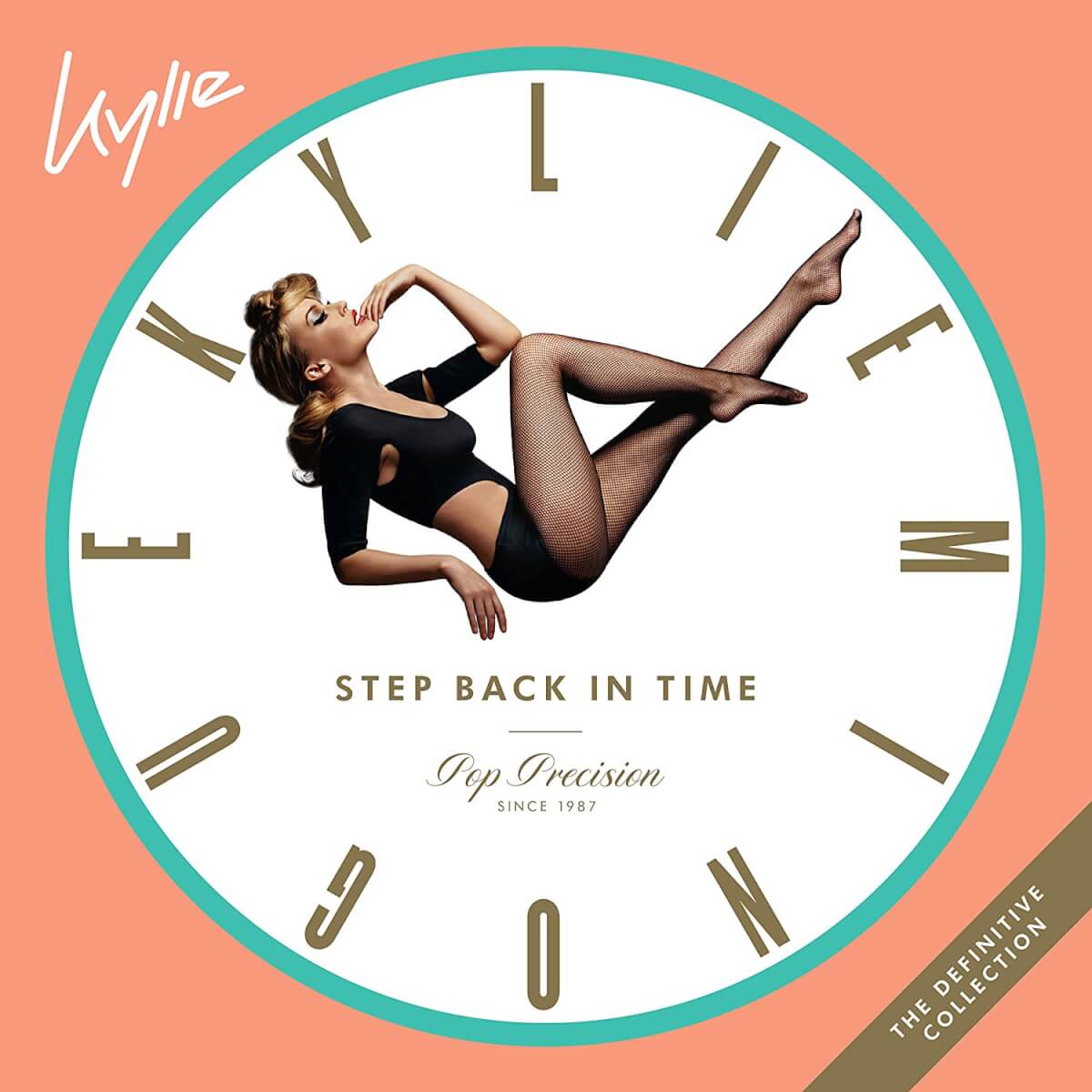She asked me if I liked Kylie Minogue. What was I supposed to say? I’m an American. I remembered her ‘Locomotion’ song from when I was a kid, and I knew the song about how she couldn’t get you out of her head. I told her yes, because I liked this person very much, and because by this point in my life I was no longer stupid all of the time. She offered to lend me her CD of Fever. She called it “a good place to start.” I took it home with me. I brought it to work the next night and listened to it.
The year was 2006. The Kylie fan was also an American, but she had done a study abroad thing in Buenos Aires a couple of years earlier. There were British and Irish kids in her class who gave her a more comprehensive Kylie education than we are able to get in this country, and had become smitten with the pop star. Both she and Kylie turned out to have a lot in common. They were each five feet tall if they stood on their tiptoes, they both had dirty blonde hair and mischievous green eyes, and they were both used to being underestimated—a quality each of them had learned to use to their own advantage. I fell in love with Kylie as I fell in love with her. Nearly 20 years later, we are all of us still together.
By the strict definition of what constitutes an album, Fever is almost certainly the greatest album Kylie Minogue has ever made. It’s also one of the greatest dance/pop/dancepop/IDM/EDM/whatever albums anyone has ever made, and I’ll say the Fischerspooner remix of ‘Come Into My World‘, with its multiple orgasmic vocals and endless ascensions of “na-na-na,” might be my favourite remix ever created by humans.
Released in 2019, Step Back in Time is a career-spanning greatest hits album that came out in a variety of formats: 2-CD, Deluxe 3-CD, a limited five-cassette edition, and a 2-LP double vinyl. For the subject of this essay, we’ll be talking about the latter, because that’s the one that I own and the one that I love dearly. It has fewer songs than the CD collections. ‘Come Into My World’ isn’t on here, remix or otherwise. Neither is ‘Locomotion’. Neither is Fever’s title track for that matter, with its blissful chord change at the end of the chorus that always makes my heart stop. “Don’t you feel the fever like I” (wait for it) “do-oooh” (yes). And yet Step Back in Time is still somehow absolutely perfect. Weirdly, I prefer hearing her music on vinyl. Not because of any enhanced sonic experience, but exactly the opposite. My turntable isn’t the cheapest one on the market, but it’s far from the most expensive. My speakers are the size of a case of a beer. If anything, hearing this pristine digitally-recorded music shoehorned into an analog existence only humanizes it even further. The songs become more vulnerable, more tactile. And as they become less clear, they somehow become more lifelike, more like existence itself.
Step Back in Time is a concept album, like all double vinyl albums are concept albums, even the compilations. They lend themselves to stories. Due to their sprawling nature, they create narratives whether they want to or not. In this case, the concept of Step Back in Time is the genius of Kylie Minogue. It’s easy to miss this genius, because it isn’t rooted in your typical genius tropes. There’s nothing cutting-edge about her recordings. She hasn’t changed the sound of music like Prince did in the early ’80s, by removing the horns sections from funk music and replacing them with synths, and by removing the looseness from the drums and replacing them with machines. She didn’t come close to reimagining what a pop lyric could be like Dylan did. Her music lacks the melodic inventiveness of McCartney, and I imagine her being deeply unsettled by Kate Bush’s more experimental moments, if not outright terrified.
The genius of Kylie Minogue—and please believe me when I tell you I am not a fan of the G word— lies in her understanding of pleasure. Listening to these songs placed one after the other, I can think of no other music that brings me such joy. It is able to do so because Minogue’s songs are always rooted in struggle, the possibility that happiness may never come and even if it does it certainly won’t last. Pay close attention to the lyrics, and you’ll notice that Kylie is as likely to sing about obsession, insecurity, and paranoia as she is to sing about happiness. A song like ‘In My Arms’ (side two, song three) sounds like a celebration, but the chorus finds the narrator asking questions that sound ever more desperate. “How does it feel in my arms? Do you want it? Do you need it? Can you feel it? Tell me how does it feel in my arms?‘” All of these questions are impossible to answer, and speak to the unknowability of romantic connection—feel free to connect this to any mid/late 20th Century French smart guy theory about the limits of language you want to. ‘In My Arms’ is essential for understanding the world of Kylie Minogue because it revolves around the two subjects that come up again and again in her songs: that there is no greater pleasure in life than the excitement of a new romantic connections, and that the power of that connection will be so powerful and transformative that everything after that can only be a disappointment. She makes this explicit in ‘All The Lovers’ when she sings “If love is really good / You just want more / Even if it throws you to the fire.”
Maybe Step Back in Time is a concept album about the fleeting nature of joy and how the temporal nature of all existence is what makes existence beautiful, though that still brings us back eventually to the genius of Ms. Minogue.
And maybe her genius lies in understanding her strengths and weaknesses as an artist—that old saying about how the difference between wisdom and stupidity is knowing what you know and knowing what you don’t know. She seems to have understood that while she didn’t have the same force of will-to-power that made Madonna more of an icon, this humility could be used to invest her music with a generosity that Madonna could scarcely imagine. Put more simply, it’s impossible to hear a Madonna song without thinking it’s about Madonna. It’s impossible to hear a Kylie song without thinking it’s about you.
Take a song like ‘I Believe In You’ (side two, song two). Like John Lennon’s ‘God’, Kylie lists all the things she doesn’t believe in. At the end of John’s litany, all he believed in was himself (and, after a few seconds thought, Yoko —nice save there, John), but Kylie believes in you. The fact her voice gets intertwined with the synths in a swirling way that sounds not unlike My Bloody Valentine, only done with voice and electronics as opposed to guitars, only adds to the unearthly bliss. Kylie doesn’t sing the word god once, but the song is as close to heaven as I’m able to imagine.
The vinyl format also turns the song order into a text, a story about Kylie Minogue. 20 songs spread out over four sides of vinyl, five songs per side. After two sides of Kylie’s imperial-era early 2000s brilliance, side three opens with Step Back in Time’s title track, followed by four songs from the Pete Waterman years. It’s a power move. I was always that good, insists side three. Those weren’t jokes. Even these songs, critically derided for their musical and lyrical triteness, their cheap dinky sub-Motown sub-House instrumental backing, find Kylie singing the ephemeral nature of happiness. Step Back in Time the song can only find joy in the past. In order for the relationship to continue in ‘Better the Devil You Know‘ (side three, track two), the narrator must resign themselves to accepting that their only choice is solitude or resigning themselves to being with a terrible partner. ‘I Should Be So Lucky‘ (side three, track four) is probably the ur-text from this era, a song where love only exists in dreams. It insists that love—and by extension, life— is simply a game of chance, that as much as we might yearn for something, our lives are governed by chaos and ultimately beyond our control.
Side three closes with ‘Especially For You‘ (side three, song five). On the surface, it seems to be a song about a couple who have gotten back together after a breakup and are now about to live happily ever after. But the first line of the pre-chorus contains a strange line, “No more dreaming about tomorrow“, that the reconciliation is conditional, and the condition is that no one in the relationship thinks about the future. This suggests a darkness, or some kind of obstacle, that makes the future of the relationship impossible and casts
Side four opens with ‘Confide In Me’ and ‘Put Yourself In My Place’, her first two post-Waterman singles in 1994. The former sounds like the greatest Bond theme that never was a Bond theme, and the latter sounds like the Spice Girls (with Kylie singing all five parts) collaborating with the Sneaker Pimps before either the SG’s or the SP’s existed. The two 1994 songs function as a bridge to 2007’s ‘2 Hearts’, Kylie’s sweatiest song, all white heat compared to ‘Can’t Get You Out of My Head’’s (side one, song one) icy cool. Step Back in Time ends with ‘Dancing’, a 2018 single that sounds uncannily like Dolly Parton and concludes with the line, “When I go out I want to go out dancing”. It could be about going out on the town, but it could also be about going out as in death. And in that light, it makes a fitting epitaph both for the album and for her body of work, Kylie’s desire to dance herself like Marc Bolan into the tomb, doing the thing that gave her the greatest pleasure in this world. It’s a bittersweet ending. And it’s one that feels, after the 19 songs that have come before it, entirely appropriate, like closing the last page on an immensely satisfying novel.

The Beatles had their Red Album. The Beatles had their Blue Album. Step Back in Time is Kylie’s Gold and Pink album, the colour of hot pants and bubble gum, the colour of expensive champagne and cheap kisses. It is, in my unesteemed opinion, the greatest double LP vinyl set of music to have ever existed. I have no dreams of living on a desert island, but I’ve always aspired to die in the desert. And when I’ve imagined my death, I’ve imagined myself dying alone. It’s an impulse I imagine Kylie Minogue would understand, as her songs in which she sounds happiest and most happy and content —‘Spinning Around’, ‘I Believe In You’ – are the ones where she’s alone. And so when the time comes when my soul must depart from my body, I should be so lucky that Step Back In Time will be playing somewhere scratchily in the distance.




